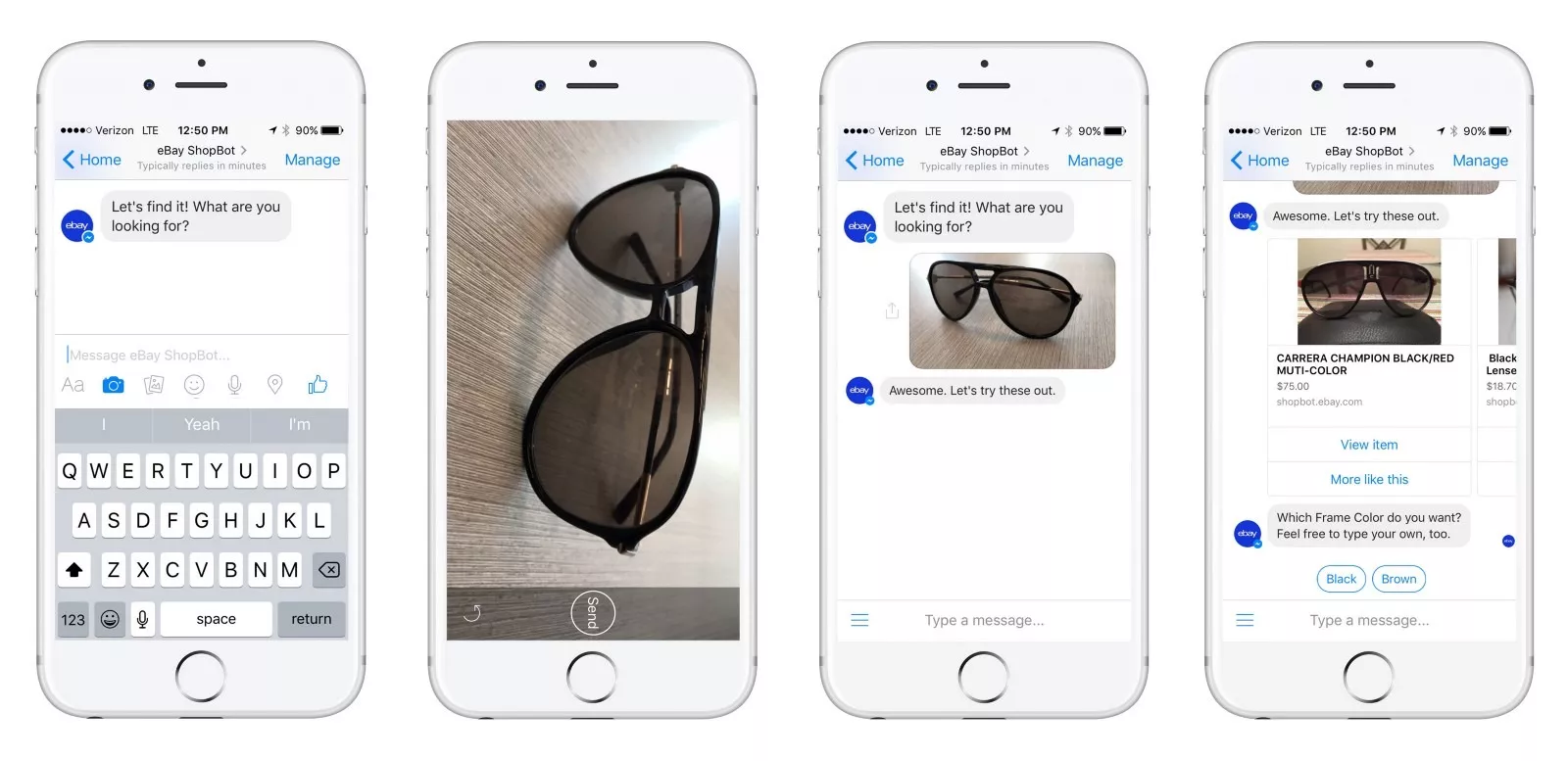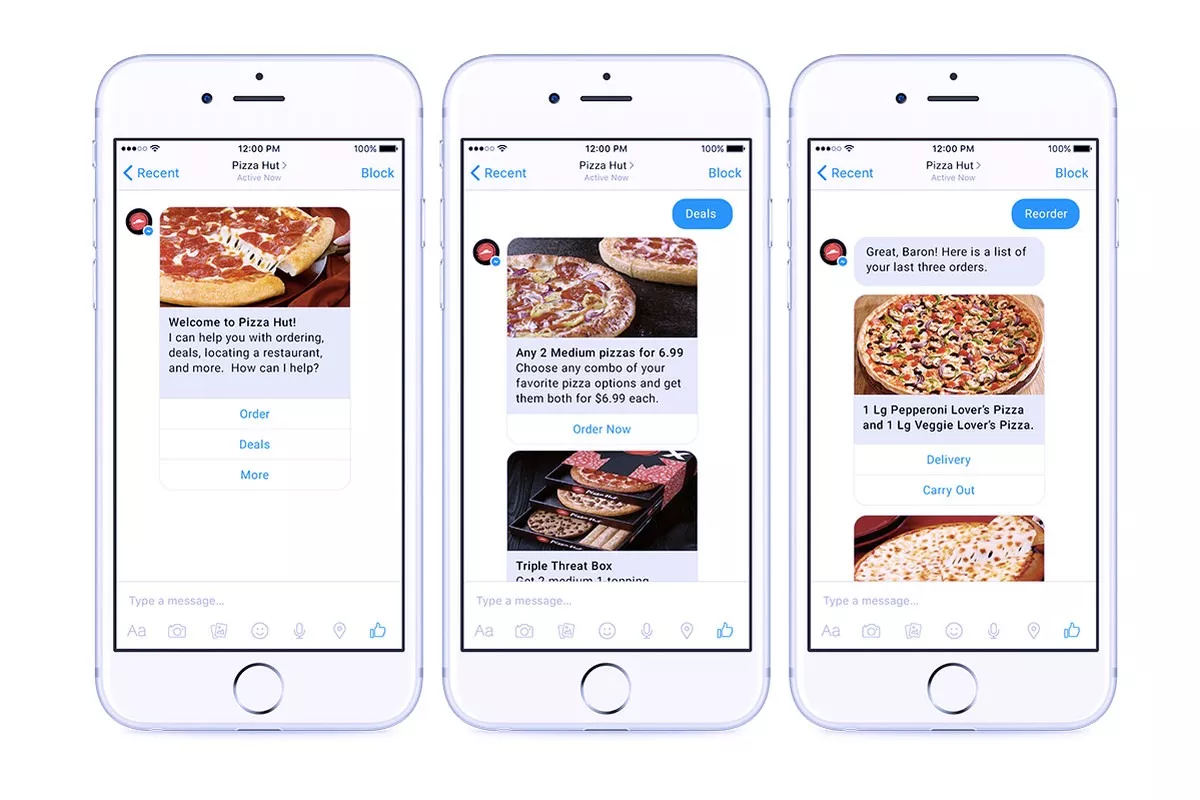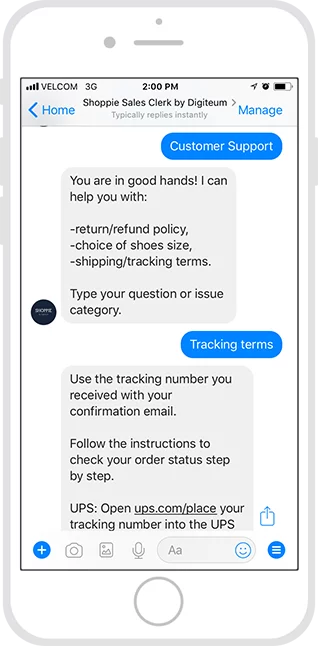Chatbots and AI in the E-Commerce Industry
As artificial intelligence (AI) technology advances, such things as self-driving cars, smartphone assistants, and smart houses are becoming more popular than ever. Yet, AI as a usable concept isn’t new as it has been in the e-commerce sector for years. Indeed, from primitive self-checkout systems to fully automated invoices, artificial intelligence has already seamlessly embedded itself in our lives.
AI is everywhere, and it already shows great results. It is often better at doing monotonous work than humans. Now that a lot of mundane work has been eliminated, this allows people to channel their energy to something more complex, something more thoughtful, and something that can push innovation to the next level.
One of the most widespread uses of AI is chatbots. And though implementing of the chatbots comes with the starting price of $20,000 and up, the benefits are worth it.
As more countries join the profit-driven band-wagon, more businesses employ artificial intelligence to support round-the-clock sales.
With chatbots, companies can aggregate and process valuable data in real time, which allows them to adjust their strategy, product positioning, or marketing efforts more accurately. Businesses can enjoy more prospects, while prospects can get more personalized service.
AI is capable of reducing the workload of your employees. With more time and workforce at your disposal, you can focus your attention on cutting down on service costs. AI in your business can achieve the following:
- Answer the majority of standard questions;
- Take over your agents’ routine tasks so that they could focus on complex work;
- Increase response time.
All these benefits of AI chatbot implementation will significantly minimize cost and allow you to develop a customer-focused approach.
In e-commerce, there are many ways you can apply AI to boost your sales. Using a chatbot for retail is one of them. Among the most popular e-commerce chatbot AI benefits are:
Increased Conversion Rate
Sales make the world go round, and e-commerce is no different. Thanks to the e-commerce AI chatbot advantages, companies can funnel the customer through the entire buying journey and then offer after-sale service. Having an e-commerce chatbot will push your business operations to the next level.
Reduced Abandoned Carts
With accurate insights at their disposal, sales representatives can fully understand sales trends and exploit them far more effectively. AI is capable of predicting these trends and help managers act on them. Managers can use a chatbot to reduce abandoned shopping cart rate by offering a more personalized experience to customers.
Sales Forecast
Analyzing large amounts of data takes a lot of time for an individual or a small team. But thanks to AI, companies can breeze through it and deliver accurate insights on consumer buying habits. A good example of this in action is YouTube.
YouTube’s AI successfully predicts what you like and composes a personalized list of videos. Moreover, the AI is also programmed to sell YouTube Premium service. The more time users spend with an AI-driven system, the more personalized the messages they receive.
Omnichannel Experience
Stimulated by growing competition and constantly shifting omnichannel consumer behavior, retail, logistics and customer service sector have truly begun to adapt AI in their business processes. Be it the personalization of the consumer’s journey online, or the seamless provision of items from stock to the door, AI is effective in meeting your and consumer’s expectations and needs.
Customer Satisfaction
Apart from boosting sales, AI can also assist in conversational commerce. It might seem unreal but call centers have been using speech recognition technology long before AI was popular.
It doesn’t mean that call centers are going away as AI becomes more human-like, but rather that they only get better at helping the staff. On top of this, night shifts are no longer a thing. Artificial intelligence is already good enough at answering, suggesting, and taking orders from customers.
With automated intelligent services, a business can improve customer satisfaction by reducing the wait time.
Ebay’s ShopBot which shows curated deals is a good example. Users can scroll through a number of products that were specifically selected based on their behavior and presented to them in the bot.

Image credit: Medium
Another good example is Pizza Hut. In certain regions, the company employs an AI system to deliver a pizza without a driver. The company also has a chatbot that you can use right now on Facebook Messenger to order pizza using voice commands or text messages.
Finally, there’s Amazon with their cashier-less stores. Everything in the store is automated and powered by AI. Using the company’s app, customers can pay, check details, and get notified about the status of their orders.
As you see, today AI, retail initiatives and chatbots are deeply connected to present the best customer experience possible.

Image credit: The Verge
Many AI advantages for e-commerce come from the fact that it can adapt to your business. Perhaps the most prominent example of good AI use is Pinterest with its Google Chrome extension.
The idea behind the app is that users can grab any picture they like and ask Pinterest to find something similar. Then, the AI comes up with a personalized suggestion based on the data it recognizes in the image. This technology can be used to determine what visual language your customers might like and present personalized content to enhance the viewing experience.
With the help of an e-commerce intelligent chatbot, websites can now offer 24/7 assistance. Back when e-commerce chatbots were in their infancy, they only provided default replies. But as technology evolved, chatbots grew to understand complex customer issues.
Multiple online retailers now use chatbots to drive buying decisions. And it’s not just online shops. Some vendors build chatbots for popular messengers, for example, Facebook Messenger, to communicate with customers via speech, text, or both.
Consistency leads to perfection, and this is exactly what AI aims to achieve. By offering connectivity in every element of our life, artificial intelligence can tackle multiple issues at once. Businesses can automate multiple processes including marketing and data processing.
This will minimize the error rate, which will result in more refined customer experience. Both B2B and B2C can leverage the power of technology in unique ways. From gathering customer data to providing remote assistance, companies can influence buying habits and preferences.
Marketing is a pretty expensive enterprise. It’s an important tool that can generate great results if used correctly. With the help of AI, both small and large businesses won’t need to spend thousands of dollars to receive their desired results. Even with a modest budget, companies can effectively present their product, introduce a new service, and offer many other service features to their customers thanks to AI.
Learn about Hindi Chatbot, a marketing tool that demonstrates how bots help increase customer retention and user engagement via gamification and edutainment.
AI is great at dealing with large data volume. Thanks to machine learning, for example, you can extract valuable marketing insights from different data sets – consumer habits, reaction to ads, shopping behavior, preferences and choices. Using these insights, marketers and sales agents can make more knowledgeable data-driven decisions on how to offer and sell goods, to the right people, at the right time.
By using AI in marketing you can obtain accurate results on a large scale.
Thus, you can also lower the CPC (cost-per-click), and increase CTR (click-through-rate) as ineffective advertisements are removed, while those that generate more leads are pushed further. Additionally, companies can automate the bidding process. This will free up a lot of time, as well as save some money.
There are many programming languages that are used to build an artificial intelligence chatbot. From Python to Ruby on Rails, the options are numerous. Yet, it all boils down to what kind of bot you want to build.
Generally, there are two types of bots ‒ bots that are based on a specific set of rules and advanced versions that rely on machine learning.
In the first case, a chatbot only understands very specific commands, while artificial intelligence chatbot can learn things on its own. In this case, an advanced chatbot would use Natural Language Processing, or NLP for short.
The engine powering this system combines a generic chatbot with a smart document categorization system. This forms an artificial brain that understands language and can actively learn from people. The more the bot talks to other humans, the smarter it gets.
Conclusion
All in all, there are many ways in which companies can use AI in e-commerce. It will remove all mundane work and allow you to focus on things that matter most – product quality and brand awareness. AI will enhance your marketing efforts and push more prospects through the funnel.
If you are planning to implement AI chatbots in your operations, figuring out how to start a custom chatbot development project, or need help choosing a specific chatbot for e-commerce, leave us a message. Together we can leverage the power of modern technology for the success of your business.





